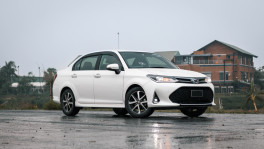Putin’s errors in Ukraine stem from ineffective internal challenge: UK spy chief

Russian President Vladimir Putin has made "strategic errors in judgement" in the war against Ukraine because there is "little effective internal challenge" to his decisions, a top United Kingdom (UK) spy chief will say in a speech on Tuesday.
The costs of the invasion of Ukraine, which began on February 24, in terms of personnel and equipment have been staggering for Russia and Russian commanders on the ground know that supplies and munitions are running out, GCHQ director Jeremy Fleming will say in the speech, according to pre-released extracts.
GCHQ is an intelligence, cyber and security agency that works closely with MI5, the Secret Intelligence Service (MI6), the military and international partners to counter threats from criminal groups and terrorists. Fleming is scheduled to make the remarks at the Royal United Services Institute's annual security lecture on Tuesday afternoon.
"Far from the inevitable Russian military victory that their propaganda machine spouted, it's clear that Ukraine's courageous action on the battlefield and in cyberspace is turning the tide," Fleming will say in his speech.
"With little effective internal challenge, [Putin's] decision-making has proved flawed. It's a high stakes strategy that is leading to strategic errors in judgement. Their gains are being reversed. The costs to Russia – in people and equipment are staggering. We know – and Russian commanders on the ground know – that their supplies and munitions are running out."
Fleming will say that Russia's forces are exhausted. "The use of prisoners to reinforce, and now the mobilisation of tens of thousands of inexperienced conscripts, speaks of a desperate situation," he will say.
"And the Russian population has started to understand that too. They're seeing just how badly Putin has misjudged the situation. They're fleeing the draft, realising they can no longer travel. They know their access to modern technologies and external influences will be drastically restricted. And they are feeling the extent of the dreadful human cost of his war of choice."
Russian cruise missiles slammed into Kyiv and other cities across Ukraine during the morning rush hour on Monday, killing about a dozen people and injuring scores. Putin said the air strikes were retaliation for the bombing of a bridge connecting Russia to Crimea over the weekend.
India said it was "deeply concerned" at the escalation of the conflict in Ukraine hours after the Russian air strikes, and reiterated its call for an immediate end to hostilities and a return to dialogue.
"India is deeply concerned at the escalation of the conflict in Ukraine, including targeting of infrastructure and deaths of civilians," external affairs ministry spokesperson Arindam Bagchi said in a statement, without naming Russia.
"We reiterate that escalation of hostilities is in no one's interest. We urge immediate cessation of hostilities and the urgent return to the path of diplomacy and dialogue. India stands ready to support all such efforts aimed at de-escalation."
India's response was in line with its stated position, since the start of the Russian invasion of Ukraine, that there should be an immediate end to the fighting and the two countries should resume dialogue to find a solution. Prime Minister Narendra Modi has conveyed the same message in recent interactions with Putin and Ukrainian President Volodymyr Zelenskyy.


 Keep updated, follow The Business Standard's Google news channel
Keep updated, follow The Business Standard's Google news channel















